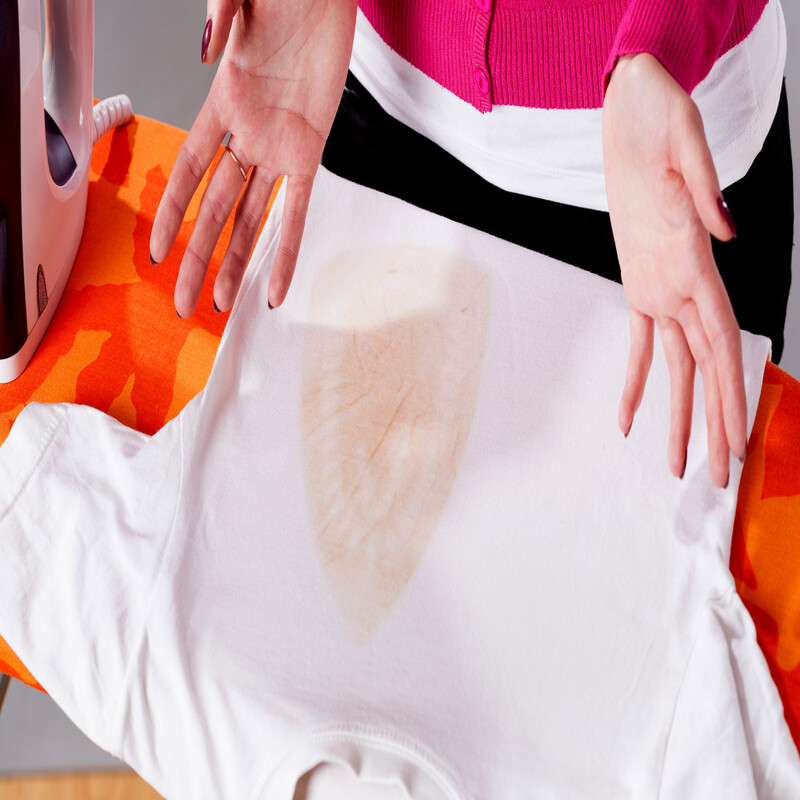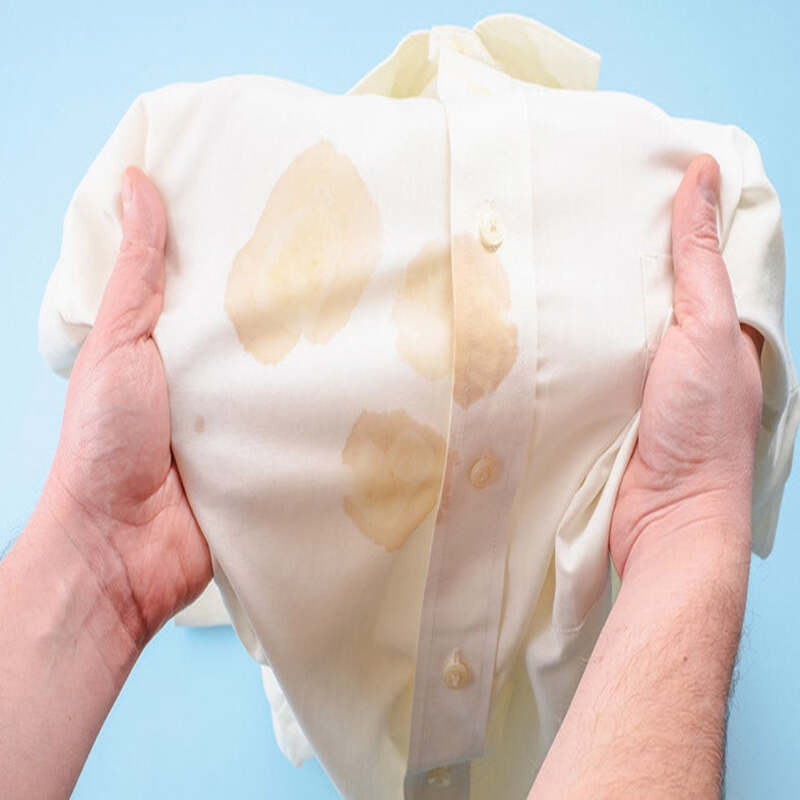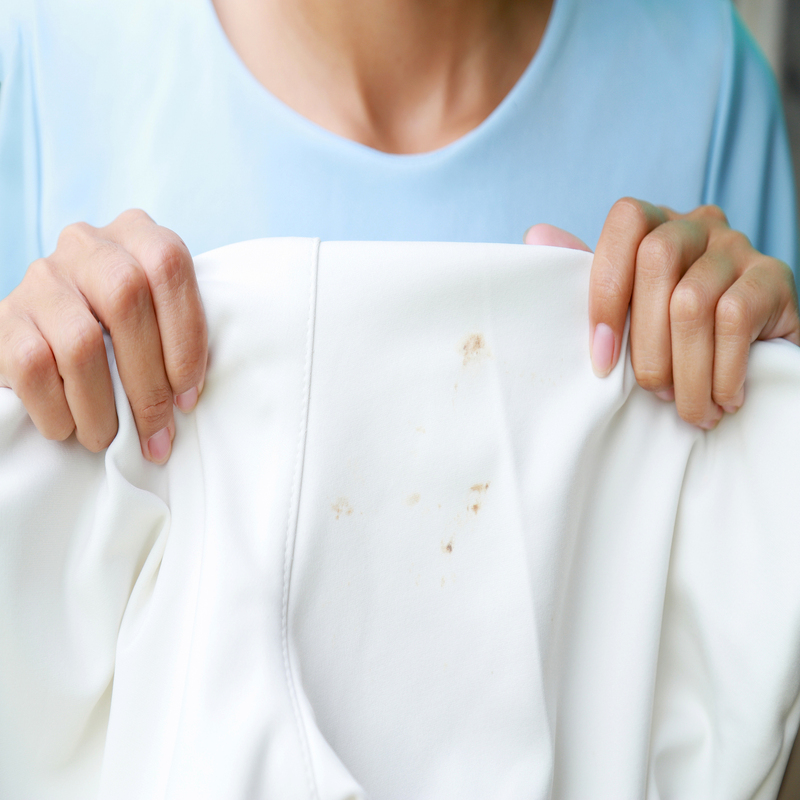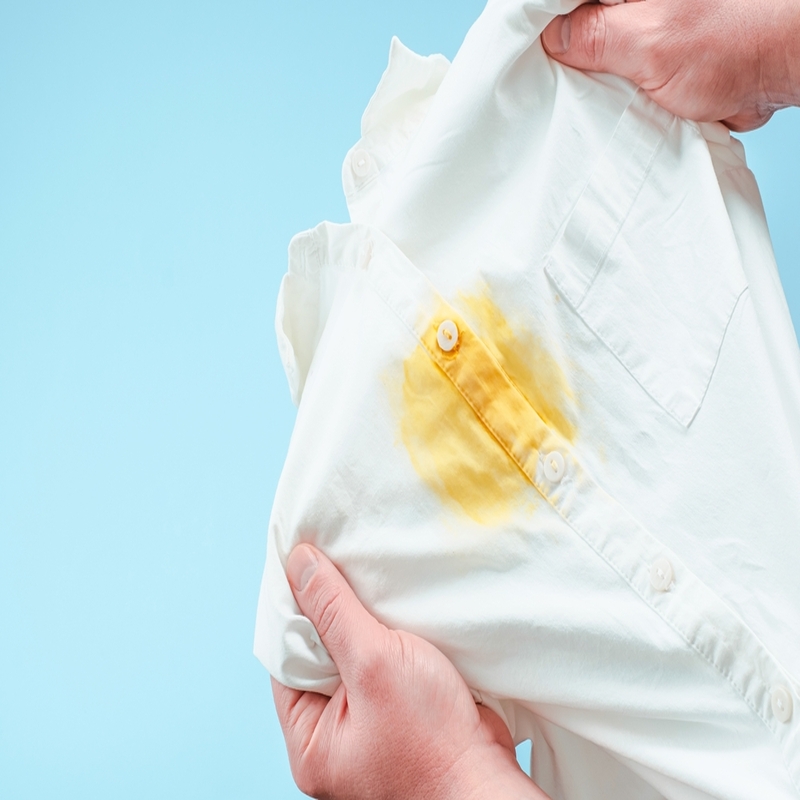Introduction to Rust Stains
Rust stains on clothes are stubborn and unsightly. They form when iron meets moisture and oxygen. This reaction creates iron oxide, or rust, that clings to fabric. White clothes can show rust stains more prominently, making them a challenge to clean. Most rust stains come from metal objects like screws, zippers, or even water with high iron content. These stains do not mean the end of your garment. How to remove iron stain from white clothes? With the right approach, you can remove rust stains from your white clothes effectively.
Pre-Treatment Measures
Before tackling iron stains on white clothes, it’s critical to prepare. Proper pre-treatment can improve the effectiveness of the stain removal process.
Equipment and Materials Required
To start, gather the following items:
- A soft-bristled brush or an old toothbrush. Use this to gently dislodge surface rust particles.
- Cold water for initial rust dilution. Cold water helps to loosen the stain without setting it.
- White vinegar, renowned for its stain removal properties.
- Baking soda, another potent stain-fighting agent.
- Lemon juice for its natural bleaching effect on rust stains.
- A clean white towel or microfiber cloth to blot and absorb fluids.
- Protective gloves to shield your hands from cleaning agents.
- A plastic bucket or a sink for soaking garments.
Initial Steps to Take Before Washing
Follow these simple steps to prep your garment:
- Lay the stained clothing on a flat surface.
- Use the brush to gently remove as much surface rust as possible.
- Rinse the area with cold water to further dilute and lift the stain.
- Mix a pre-treatment solution if using homemade remedies.
- Test any commercial cleaners on an inconspicuous area of the clothing.
- Apply the chosen pre-treatment solution directly to the stain.
By preparing and using the right materials, you are setting the stage for successful stain removal.

Homemade Solutions for Stain Removal
Discover how to tackle iron stains on your white clothes with everyday items found in your home.
Utilizing White Vinegar and Baking Soda
White vinegar and baking soda are powerful allies in fighting rust stains. Here’s how to use them:
- Create a paste of three parts baking soda to one part water.
- Spread this paste over the stain on your garment.
- Pour white vinegar onto the paste-coated stain; it will fizz.
- Let this mixture work on the stain for 30 minutes.
- Rinse the garment with cold water and check the results.
Repeat these steps if needed before placing your clothes in the wash.
Harnessing the Power of Lemon Juice
Lemon juice is a natural bleaching agent perfect for white clothes. Here’s a simple method:
- Squeeze fresh lemon juice directly onto the rust stain.
- Spread the juice evenly with your fingers or a brush.
- Allow it to sit in the sun; sunlight boosts the lemon’s bleaching effect.
- After an hour in the sun, rinse the area with water.
- If the stain persists, repeat the process or proceed to washing.
Combining lemon juice and sunlight can be a gentle yet effective way to bid farewell to those stubborn marks.
Commercial Rust Removers
When home remedies don’t work, commercial rust removers are a good next step. These products often contain oxalic acid or hydrofluoric acid – chemicals effective at rust removal.
Choosing the Right Commercial Cleaner
Select a cleaner designed for clothing fabrics. Look for one that is gentle on whites without containing bleach. Check online reviews or ask friends for recommendations. Always select a product made for the type of fabric your clothing is made of.
Precautions and Usage Instructions
Test the cleaner on a small, hidden part of the garment first. This will ensure it won’t damage the fabric or alter the color. Wear gloves to protect your hands from harsh chemicals. Follow the instructions carefully. Apply the cleaner, wait for the specified time, and then rinse thoroughly. After using a commercial rust remover, wash the garment with a high-quality detergent. Remember to use the washing cycle and temperature recommended on the clothing’s care label.

Washing Techniques for White Clothes
Successfully removing iron stains from white clothes is not just about the pre-treatment. The washing process itself is crucial to ensure stains are fully removed and clothes are not damaged. With the right techniques and detergents, you can restore your white garments to their original state.
Selecting Appropriate Detergent
When choosing a detergent, consider one that’s formulated for white fabrics. This type of detergent often contains optical brighteners that make whites appear whiter. Avoid using detergents with bleach if you’ve already used a rust remover since harsh chemicals can interact negatively. Prefer high-quality brands, such as Ariel Matic or Persil, for their stain-fighting capabilities.
The Importance of Washing Cycle and Temperature
Always check the care label on your clothing before selecting the washing cycle and temperature. Typically, white clothes benefit from a warm wash cycle, but if you’re dealing with rust stains, it’s best to stick with cold water to prevent setting the stain. Use a gentle or regular cycle based on the fabric type. For example, delicate fabrics need a gentler wash cycle, even if they are white.
After washing, check that the stain has been removed before putting the clothes in the dryer. Heat can set stains permanently. If a trace of the stain remains, repeat the pre-treatment and washing process. Once the stain is out, hang the clothes to dry in the sun, which can also help to naturally bleach and freshen the fabric.
By selecting the appropriate detergent, and understanding the importance of the washing cycle and temperature, you’re well-equipped to tackle those tough iron stains on your white clothes.
Post-Wash Tips
After washing, it’s crucial to follow some post-wash tips to ensure stain removal success and maintain the quality of your white clothes.
Checking Stain Removal Success
Once the wash cycle completes, examine your clothes before drying. Look carefully for any rust signs. If stains linger, repeat the pre-treatment and wash again. Never dry clothes with visible stains, as the heat may set them in.
Drying and Sun Exposure Benefits
Air-drying in the sun helps further bleach white fabrics naturally. Lay clothes flat to avoid lines or wrinkles. The sun’s UV rays can aid in breaking down any remaining stain particles. But, monitor your garments to prevent excessive sun exposure which may weaken the fabric.

Preventative Measures
Taking preventive measures is as vital as knowing how to remove iron stains from white clothes. By avoiding rust exposure and maintaining regular garment care, you can keep your white clothes pristine.
Avoiding Rust Exposure
To avoid rust stains, keep white clothes away from metal that could corrode. This includes avoiding contact with metal hangers, pipes, and old machinery when wearing white garments. Ensure your water source is free of high iron levels by installing water filters if necessary.
- Use Plastic or Wooden Hangers: Replace metal hangers with plastic or wooden ones to prevent rust transference from hanger to garment.
- Install Water Softeners: High iron in water can lead to rust stains during laundry cycles. Consider installing a water softener system.
- Avoid Wet Contact: Don’t let white clothes stay wet next to metal objects. Dry white laundry immediately after washing.
- Check for Leaks: Regularly inspect areas near water pipes or water heaters for leaks that could cause rust.
By taking these precautions, you lower the risk of unexpected rust stains on your favorite white pieces.
Regular Garment Care and Inspection
Consistent checking and care of your garments can prevent rust stains before they become a problem. Wash whites frequently and inspect them for any specks of rust or discoloration. If you spot a stain, immediate treatment is essential.
- Frequent Washing: Keep your white clothes clean by washing them regularly, which can prevent rust from building up.
- Prompt Inspection: Examine your whites after each wash to catch potential rust stains early.
- Immediate Treatment: When you detect a small rust stain, treat it instantly to avoid it setting in.
- Professional Advice: If unsure how to deal with a rust stain, seek professional cleaning advice.
By incorporating these maintenance and inspection routines, you extend the lifespan of your white clothes and maintain their appearance without being troubled by rust stains.

